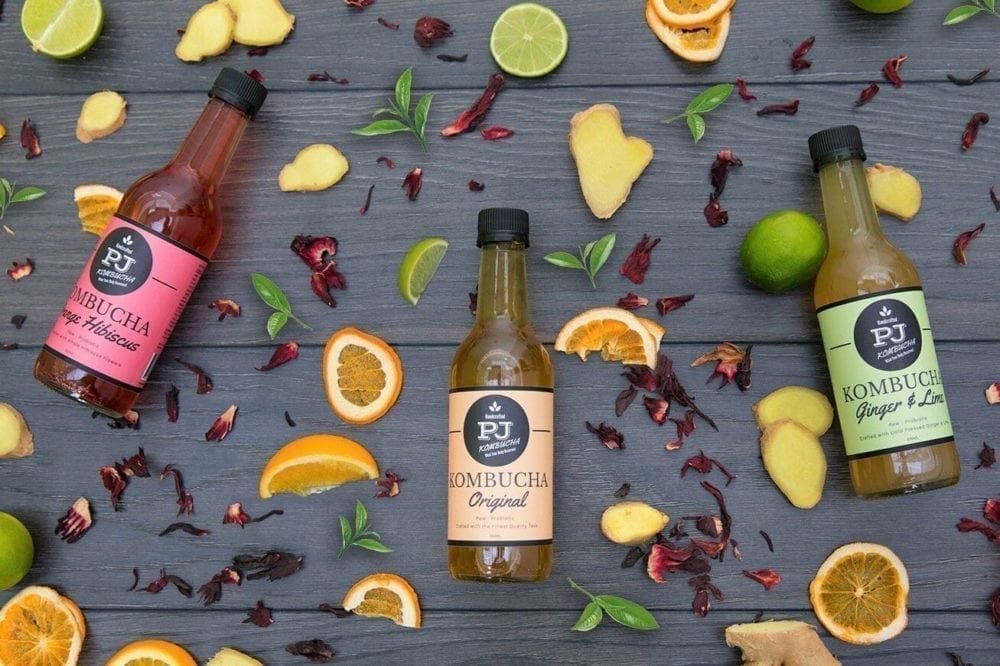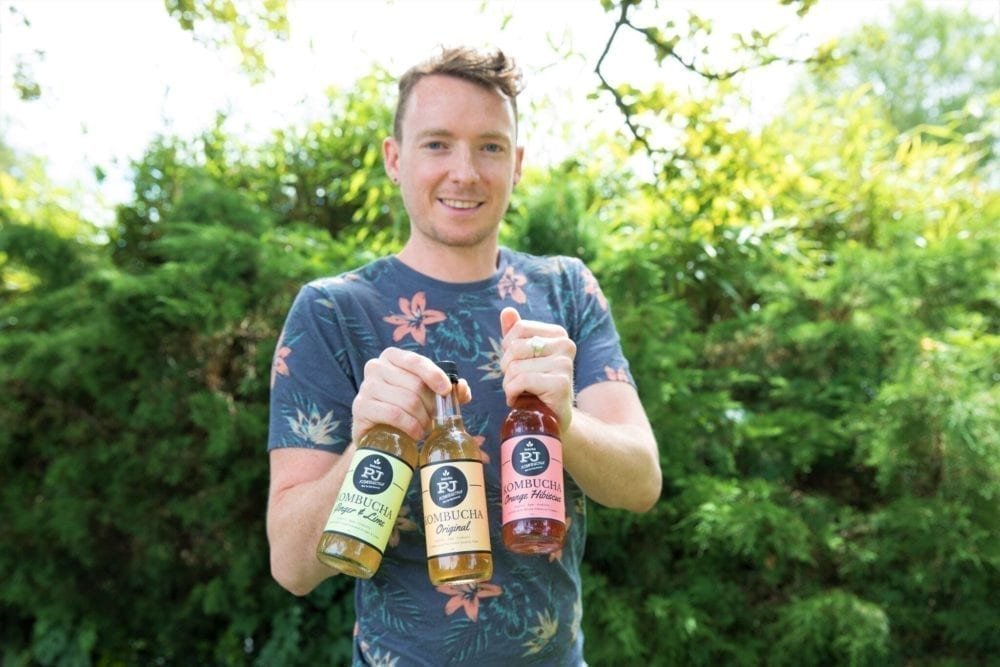This article first appeared in our winter ’18 issue of MyGreenPod Magazine, The Resolution Revolution. Click here to subscribe to our digital edition and get each issue delivered straight to your inbox
Kombucha – ‘the tea of immortality’ – has reportedly been used to treat everything from high blood pressure to cancer. Today the fermented tea – which doesn’t taste like tea and is often described as a healthy soft drink– is more commonly found in health store fridges.
The most accepted theory of origin is that a Chinese scientist named Kombu brought the elixir to Japan in around 414 AD to heal the emperor’s digestive issues. From then on it was known as Kombu’s Tea, or KombuCha.
Despite its long history, we’re only beginning to understand kombucha’s health benefits. Patrick O’Connor, founder of PJ Kombucha, discovered them for himself after experiencing a skin infection. ‘It turned out to be quite a persistent little bugger’, he tells us. ‘I was on and off antibiotics for just over six months, which left my insides in turmoil. I was bloated, had irregular bowel movements and felt ill when eating some foods.’
Patrick searched for a natural remedy to replenish his lost micro-intestinal flora. He spotted kombucha in a small store in Western Australia and was drawn to the live natural cultures it contained. ‘After drinking kombucha for around 16 days, I started to feel like my old self’, he says. ‘The bloating went in a few days and after a couple of weeks my bowels were in working order!’
What is Kombucha?
Kombucha is made by combining a scoby (symbiotic colony of bacteria and yeasts) with a sugary tea solution. The finished product’s bacterial, antioxidant and antimicrobial – plus some anticancer – properties have led to claims it restores and maintains beneficial gut bacteria, aids detoxification, supports the immune system, aids digestion and weight loss and helps combat stress and cholesterol.
We don’t yet know how drinking kombucha compares with taking other supplements, but kombucha’s point of difference is that it delivers a diverse number of live beneficial bacteria and yeasts, as well as the food they need to thrive in the gut, in the form of prebiotics. Tablets or other drinks, while great at introducing their strains of bacteria, often have a few strains or just the one.
On top of that, kombucha contains a range of naturally occurring vitamins (primarily B-complex), amino acids, organic acids, digestive enzymes and antioxidants. ‘Just as in terrestrial and aquatic ecology, diversity is key to a healthy and sustainable ecosystem within the gut’, Patrick explains.
Brewing kombucha
Kombucha is really easy to start, but it’s also easy to get wrong. ‘There have been incidents of people getting sick from kombucha due to improper home brew preparation’, Patrick says. ‘I’d caution anyone who wants to start a home brew to do their research so that they fully understand the biochemical processes taking place.’
Today there are so many options available that you don’t need to take the risk of brewing kombucha yourself. However, some businesses add sulphites and finings, and pasteurise, filter and dilute kombucha, all of which has an impact on its primary benefit: the live cultures it contains.
 Play Video about This Rock Might Just Save The World
Play Video about This Rock Might Just Save The World Play Video about Play 2 hours of rock
Play Video about Play 2 hours of rock Play Video about Play 2 hours of brook
Play Video about Play 2 hours of brook Play Video about Play 2 hours of sheep
Play Video about Play 2 hours of sheep













































